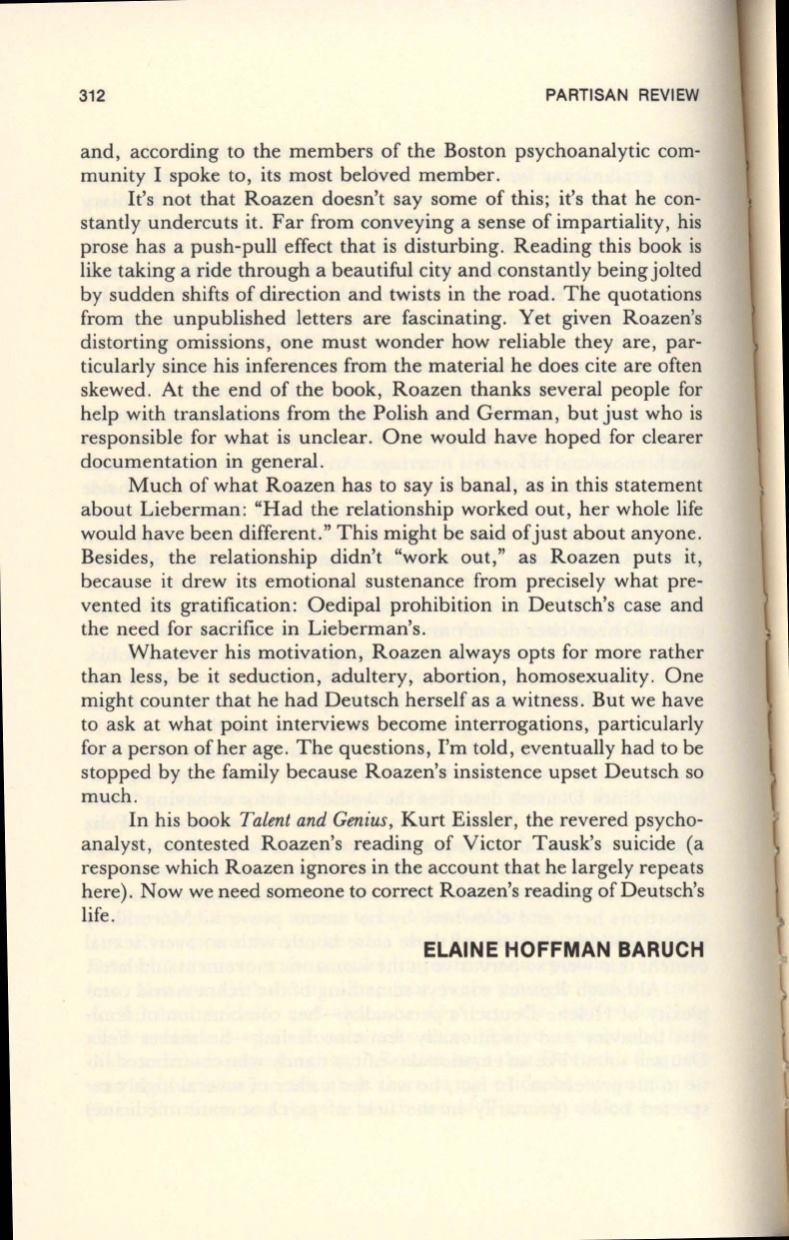
312
PARTISAN REVIEW
and, according to the members of the Boston psychoanalytic com–
munity I spoke to, its most beloved member.
It's not that Roazen doesn't say some of this; it's that he con–
stantly undercuts it. Far from conveying a sense of impartiality, his
prose has a push-pull effect that is disturbing. Reading this book is
like taking a ride through a beautiful city and constantly being jolted
by sudden shifts of direction and twists in the road . The quotations
from the unpublished letters are fascinating . Yet given Roazen's
distorting omissions, one must wonder how reliable they are, par–
ticularly since his inferences from the material he does cite are often
skewed . At the end of the book, Roazen thanks several people for
help with translations from the Polish and German, but just who is
responsible for what is unclear. One would have hoped for clearer
documentation in general.
Much of what Roazen has to say is banal, as in this statement
about Lieberman: "Had the relationship worked out, her whole life
would have been different." This might be said ofjust about anyone.
Besides, the relationship didn't "work out," as Roazen puts it,
because it drew its emotional sustenance from precisely what pre–
vented its gratification: Oedipal prohibition in Deutsch's case and
the need for sacrifice in Lieberman's.
Whatever his motivation, Roazen always opts for more rather
than less, be it seduction, adultery, abortion, homosexuality. One
might counter that he had Deutsch herself as a witness . But we have
to ask at what point interviews become interrogations, particularly
for a person of her age. The questions, I'm told, eventually had to be
stopped by the family because Roazen's insistence upset Deutsch so
much.
In his book
Talent and Genius,
Kurt Eissler, the revered psycho–
analyst, contested Roazen's reading of Victor Tausk's suicide (a
response which Roazen ignores in the account that he largely repeats
here). Now we need someone to correct Roazen's reading of Deutsch's
life .
ELAINE HOFFMAN BARUCH


